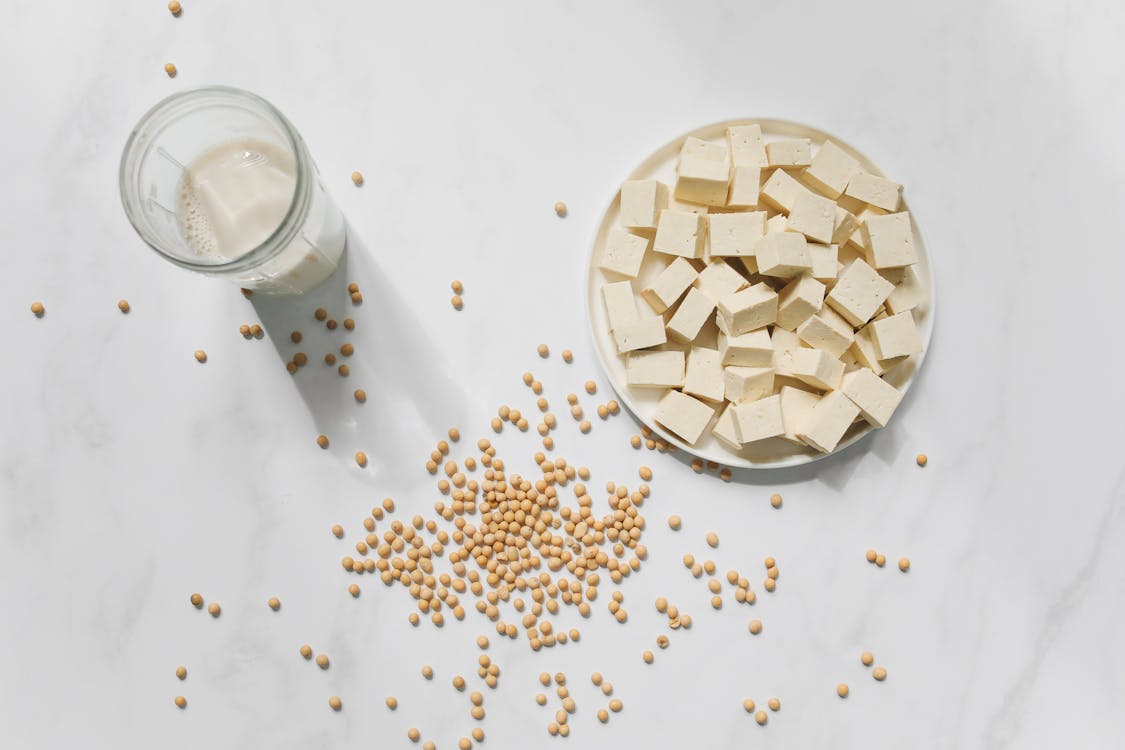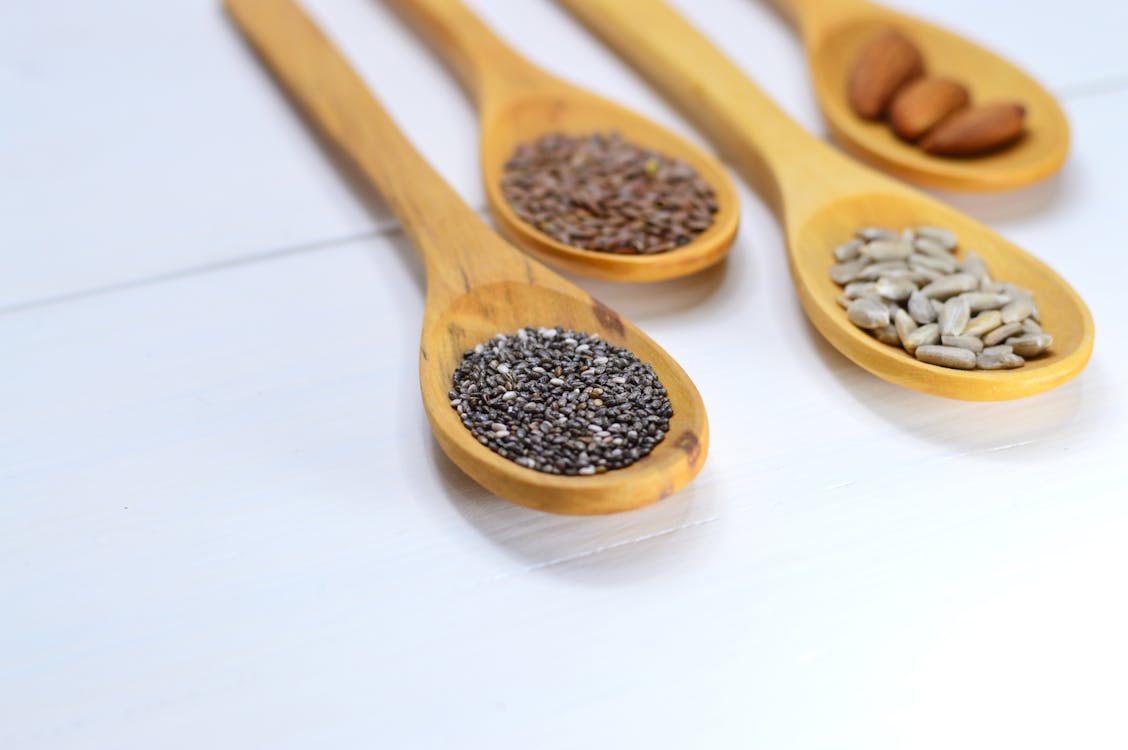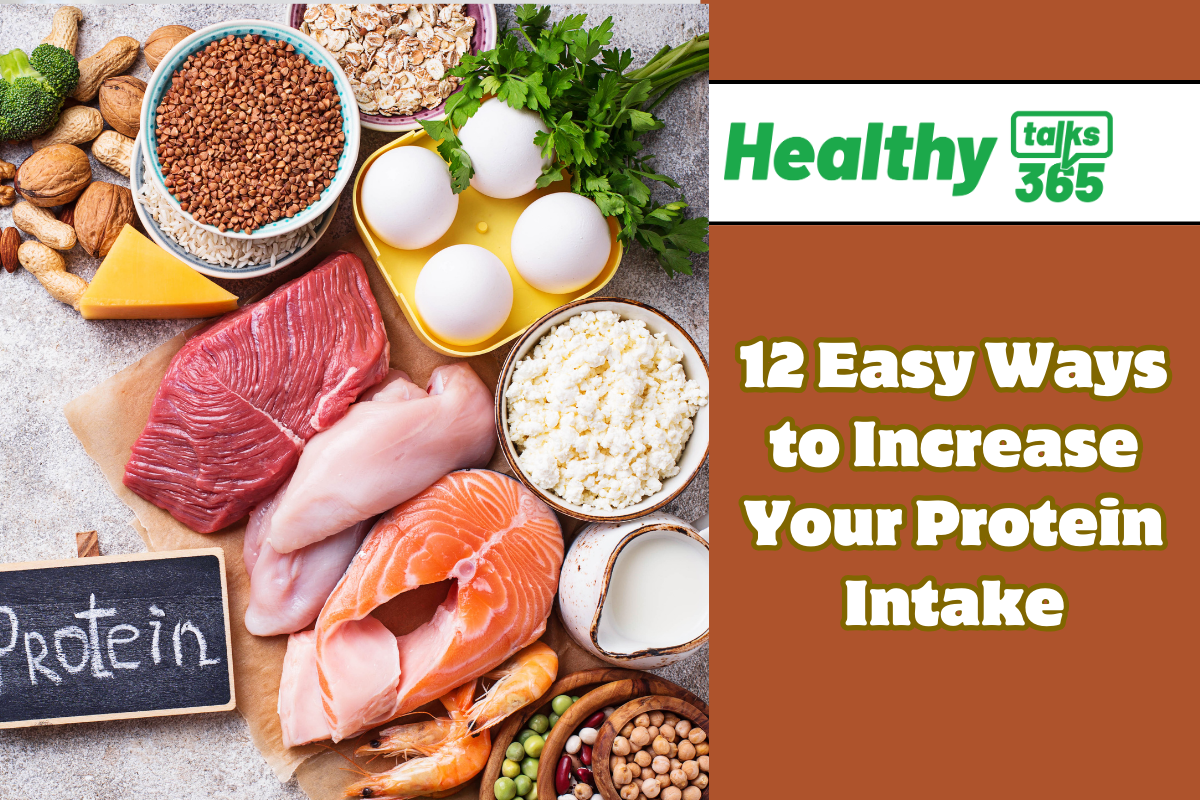12 Easy Ways to Increase Your Protein Intake
Lean Meats
Lean meats such as chicken breast, turkey breast, and lean cuts of beef or pork are excellent sources of high-quality protein. They provide essential amino acids necessary for muscle growth and repair, making them ideal choices for athletes and individuals focused on fitness. In addition to their protein content, lean meats offer nutrients like iron, zinc, and vitamin B12, which support energy metabolism and immune function. Cooking methods such as grilling, baking, or broiling help retain their nutritional integrity while minimizing added fats. Incorporating lean meats into meals not only promotes muscle health but also provides satiety and supports overall nutritional balance in diverse diets.
Fish
Fish, particularly varieties like salmon, tuna, and trout, are prized for their protein content and rich nutrient profile. Beyond protein, fish are abundant in omega-3 fatty acids, essential fats known for their heart health benefits and anti-inflammatory properties. Regular consumption of fish supports cardiovascular health, muscle recovery, and cognitive function. Grilling, baking, or steaming fish preserves its protein content while enhancing its flavor and nutritional value. Including fish in your diet provides a delicious and nutritious source of protein that contributes to overall well-being and optimal physical performance.

Eggs
Eggs are a versatile and nutritious protein source that offers more than just essential amino acids. They are rich in vitamins such as vitamin D, crucial for calcium absorption and bone health, and choline, essential for brain function and development. Eggs can be enjoyed in various preparations, from simple boiled or scrambled eggs to more elaborate dishes like frittatas or omelets. Beyond their protein content, eggs provide nutrients that support overall health, including eye health due to their lutein and zeaxanthin content. Incorporating eggs into your diet promotes muscle repair, satiety, and overall nutritional adequacy, making them a valuable addition to any meal plan.
Greek Yogurt
Greek yogurt stands out for its creamy texture, high protein content, and probiotic benefits. It’s strained to remove excess whey, resulting in a thicker consistency and higher protein concentration compared to regular yogurt. Greek yogurt is rich in probiotics, beneficial bacteria that promote gut health, aid digestion, and enhance nutrient absorption. Beyond protein, it provides calcium for bone health and serves as a versatile ingredient in smoothies, dips, and desserts. Including Greek yogurt in your diet supports muscle recovery, digestive health, and immune function, making it a nutritious choice for individuals seeking to maintain overall well-being.
Quinoa
Quinoa is a nutrient-dense whole grain renowned for its complete protein profile and versatility in cooking. It contains all nine essential amino acids necessary for muscle repair and growth, making it an excellent choice for vegetarians and vegans. Quinoa is also rich in fiber, vitamins (such as folate and vitamin E), and minerals (like magnesium and phosphorus), supporting digestive health and overall well-being. Its adaptability in recipes—from salads to porridge or as a side dish—makes quinoa a valuable staple in diverse diets. Incorporating quinoa into meals provides sustained energy, promotes satiety, and contributes to overall nutritional balance and muscle health.
Read Also:
11 Best Ways to Improve Your Digestion
Chickpeas
Chickpeas, also known as garbanzo beans, are legumes known for their protein and fiber content, which contribute to satiety and digestive health. They are versatile in culinary applications, from hummus and falafel to soups, salads, and stews. Beyond protein, chickpeas offer complex carbohydrates that provide sustained energy and support muscle function. They are also rich in essential nutrients like folate, iron, and manganese, crucial for energy metabolism and overall well-being. Incorporating chickpeas into your diet promotes muscle repair, digestive health, and balanced nutrition, making them a beneficial addition to various meal plans.
Tofu
Tofu, made from soybeans, is a plant-based protein alternative prized for its versatility and nutritional benefits. It’s a complete protein source, providing all essential amino acids necessary for muscle repair and growth. Tofu is also rich in calcium, iron, and magnesium, essential minerals that support bone health and overall well-being. Its neutral flavor and ability to absorb marinades and seasonings make it suitable for various dishes, including stir-fries, soups, salads, and desserts. Incorporating tofu into your diet promotes muscle health, supports bone density, and provides essential nutrients vital for overall health and vitality.

Lentils
Lentils are legumes known for their protein, fiber, and nutrient content, making them a nutritious addition to diverse diets. They come in various colors, including green, red, and black, each offering unique flavors and culinary applications. Beyond protein, lentils are rich in folate, iron, and potassium, essential nutrients that support energy metabolism, blood circulation, and muscle function. They are versatile in recipes such as soups, stews, salads, and meat substitutes like lentil burgers or meatballs. Incorporating lentils into meals promotes satiety, digestive health, and overall nutritional balance, making them a valuable component of a healthy eating plan.
Protein Shakes
Protein shakes are convenient and effective supplements for increasing daily protein intake, especially for individuals with active lifestyles or specific dietary goals. They typically consist of protein powder (such as whey, casein, soy, or pea protein) mixed with water, milk, or other liquids. Protein shakes are customizable with additions like fruits, vegetables, or nut butters to enhance flavor and nutrient content. They provide a concentrated source of amino acids necessary for muscle repair, recovery, and growth. Incorporating protein shakes into your diet supports post-workout recovery, muscle synthesis, and overall nutritional balance, contributing to optimal physical performance and well-being.
Cottage Cheese
Cottage cheese is a dairy product known for its high protein and calcium content, making it a popular choice among health-conscious individuals. It’s low in fat and provides essential nutrients that support muscle repair, bone health, and overall well-being. Cottage cheese can be enjoyed plain or paired with fruits, nuts, or honey as a satisfying snack or dessert option. It serves as a versatile ingredient in recipes like salads, dips, and smoothies, enhancing protein intake and promoting satiety. Incorporating cottage cheese into your diet supports muscle recovery, bone density, and overall nutritional adequacy, making it a valuable component of balanced eating habits.
Nuts and Seeds
Nuts and seeds, such as almonds, walnuts, chia seeds, and flaxseeds, are nutrient-dense snacks rich in protein, healthy fats, and dietary fiber. They provide sustained energy and promote satiety, making them ideal for snacking or adding crunch to meals. Nuts and seeds offer essential nutrients like vitamin E, magnesium, and omega-3 fatty acids, which support heart health, brain function, and overall well-being. They can be enjoyed on their own as a snack or incorporated into recipes like salads, yogurt, or oatmeal for added texture and nutritional benefits. Including nuts and seeds in your diet supports muscle recovery, satiety, and balanced nutrition, enhancing overall health and vitality.

Cheese
Cheese is a versatile dairy product known for its protein, calcium, and vitamin content, essential for muscle function, bone health, and overall well-being. It comes in various forms and flavors, from soft cheeses like mozzarella and ricotta to aged cheeses like cheddar and Parmesan. Cheese can be enjoyed on its own as a snack or incorporated into recipes like sandwiches, salads, or pasta dishes. Opting for low-fat or reduced-fat cheese varieties helps minimize saturated fat intake while maximizing protein benefits. Cheese provides essential nutrients crucial for muscle repair, bone density, and overall nutritional balance, supporting optimal physical performance and well-being when included in a balanced diet.




